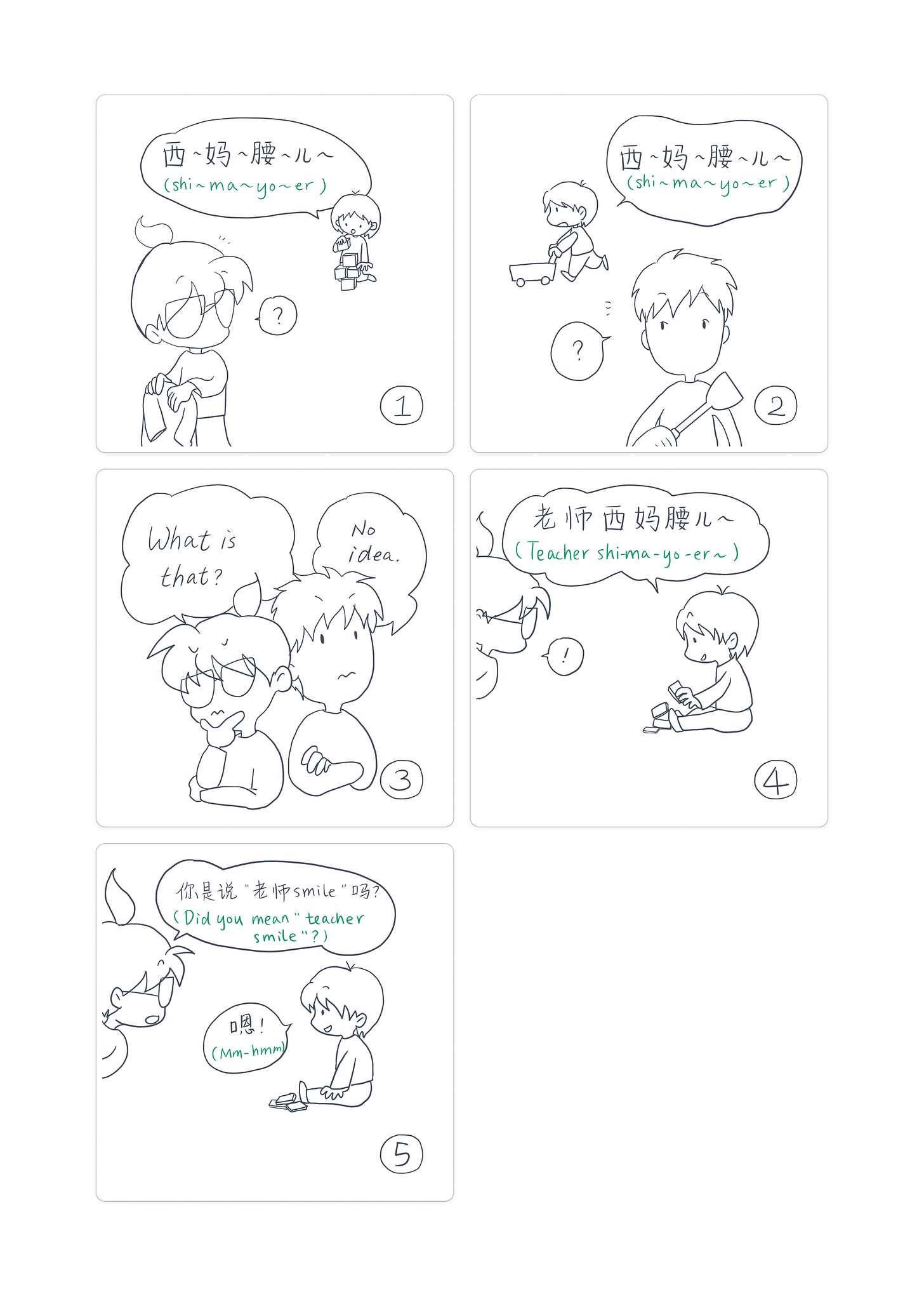Memolines~ When my toddler code-switches: understanding environmental influence on people
Environment has a far deeper influence than we might imagine.
"Baba (daddy), show me!" When I hear my toddler naturally mixing Chinese and English words, it made me think about how environment shapes children, especially in language learning and habit formation.
I grew up in a purely Chinese-speaking environment. Although I started learning English in third grade and continued through college, with some exposure to English through tapes and cartoons at home, English remained something "foreign" to me. My main sources of English were just classes and occasional American TV shows.
Even when I planned to study abroad in an English-speaking country, I only thought about how English would help me access more information and read more books. I never imagined it would change the way I speak. After living abroad and reaching a certain level of English proficiency, I found myself code-switching between Chinese and English. Sometimes when speaking Chinese, I naturally slip in English words - after being in an English environment for so long, certain concepts just flow better in English, and I don't bother translating them back to Chinese.
When I first arrived in the USA, despite years of English study, my practical language skills were poor. For at least the first few years, I struggled with spoken communication. I had to think of what I wanted to say in Chinese first, then translate it to English before speaking - a time-consuming process. But with dedicated practice, now I can express myself naturally and accurately in English without that mental translation step.
Interestingly, my toddler, who experiences Chinese at home and English at daycare, started mixing languages much earlier than I did. She says things like "Mama hug" or "Baba (daddy) help" or "Baba (daddy) show me." These English verbs clearly come from daycare, since at home we usually teach her the Chinese equivalents like "抱抱" (hug) or "给你看一下" (show you). At school, teachers use English words with actions to help children naturally understand and internalize these expressions.
Through observing both my own and my child's language learning experiences, I've realized that environment has a far deeper influence than we might imagine. When learning a language or trying to develop any habit, immersing ourselves in the right environment can significantly impact both the method and speed of learning. For example, in a home where parents love reading and books are easily accessible, children are more likely to develop reading habits. If music often fills the house, children naturally develop an appreciation for it. Of course, this also means negative environments can have adverse effects on children, and breaking away from such influences often requires external intervention or conscious change.
This is why my husband and I pay special attention to cultivating good habits in our child. We believe habits are formed through daily accumulation - good habits you see in a three-year-old started developing at age one or two. You can't expect a child who lived in chaos during early years to suddenly become self-disciplined at age five.
As adults, we're also deeply influenced by our work and living environments. Our spouses, bosses, and colleagues' behaviors affect our own, but we have the judgment to filter these influences. However, children are like blank canvases, and environmental influences are particularly crucial because they imitate everything around them without discrimination. Therefore, the guidance from family and society becomes even more important for young children.
This is a new challenge for us as parents, and we continue to observe, reflect, and adjust our approach to raising our child.


